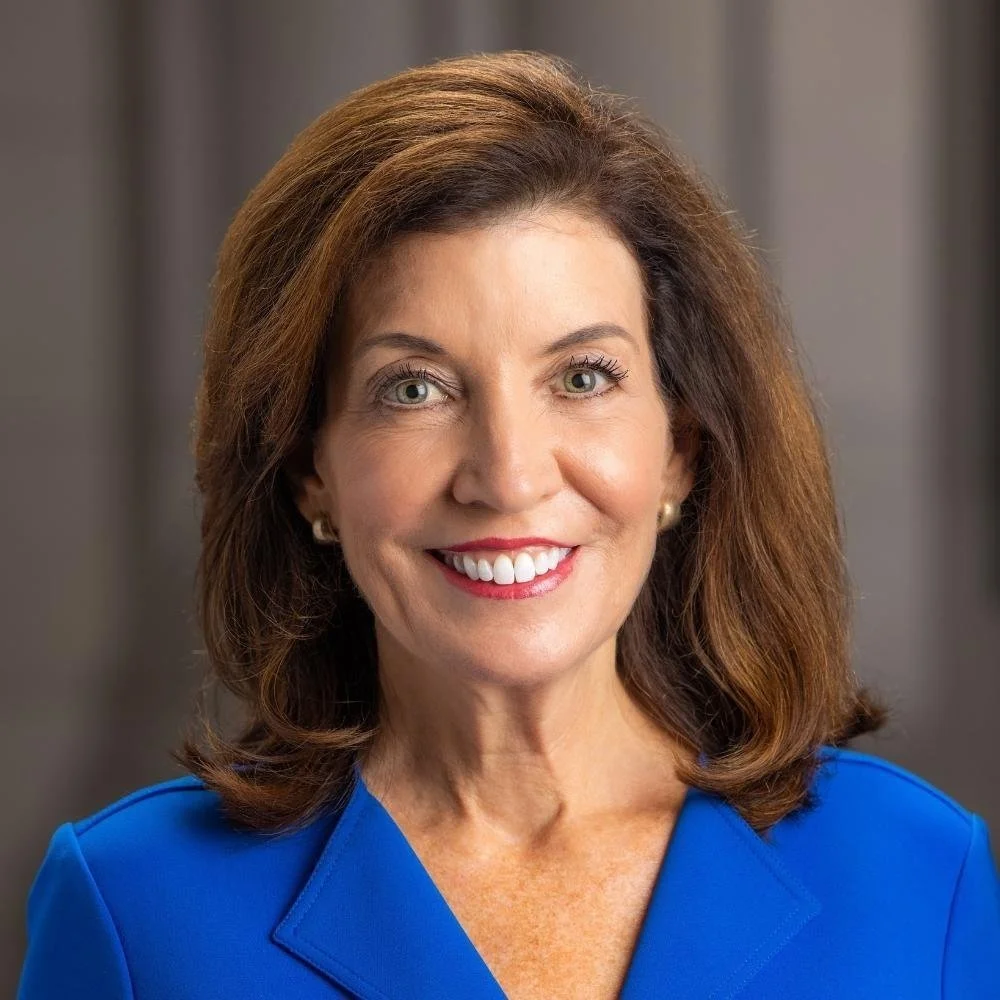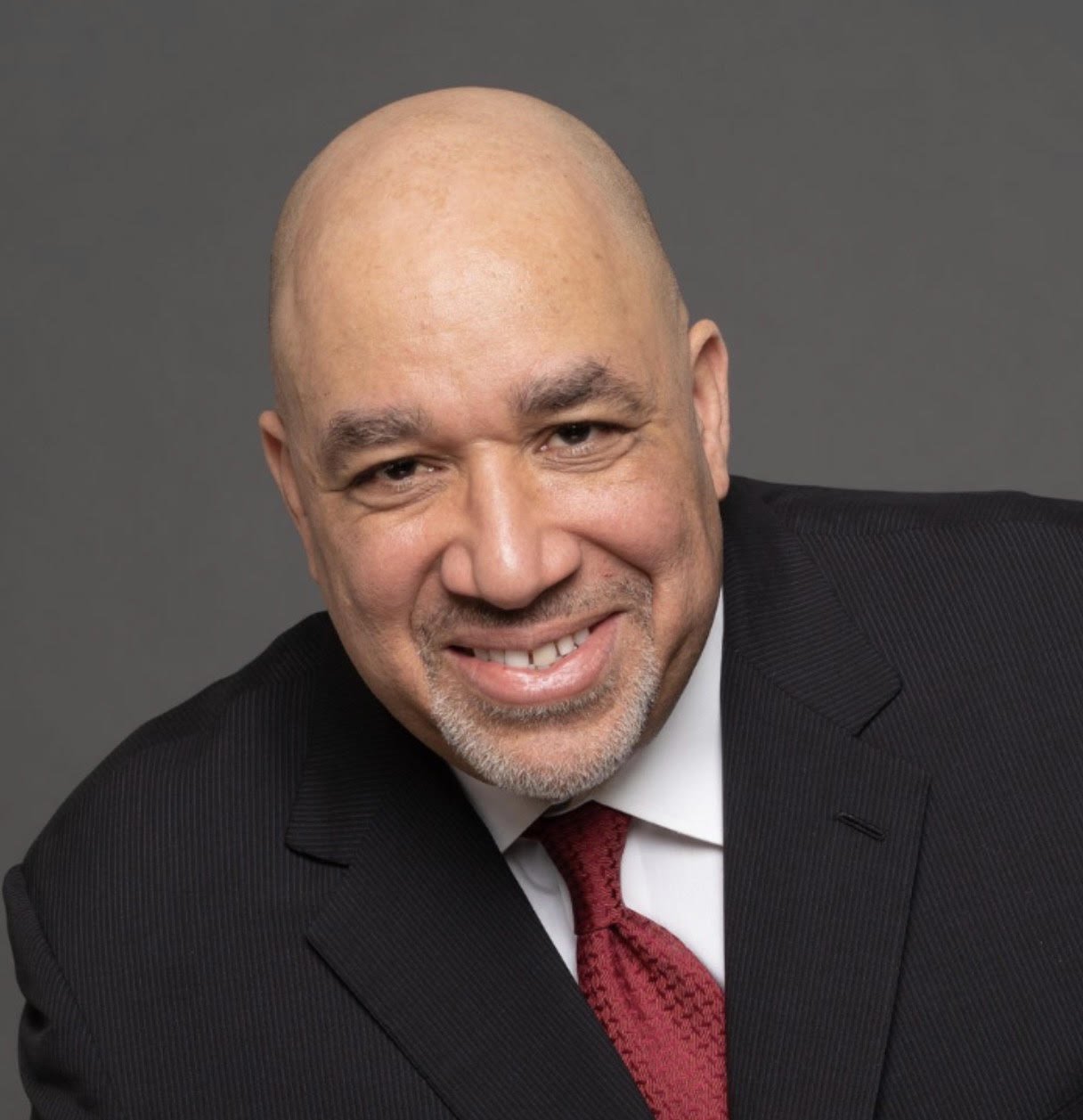Governor Kathy Hochul
Please share what, in your view, best qualifies you to be the governor or lieutenant governor of the State of New York?
As Governor of New York, Kathy Hochul has brought a fresh and collaborative approach to governing and is working hard to get results for New Yorkers. She has taken decisive action to deliver immediate relief to working- and middle-class families, get small businesses back on their feet, and accelerate New York’s economic recovery. At the same time, Governor Hochul has reaffirmed New York's position as a national leader in defending reproductive rights, combating climate change, and passing gun safety legislation that has become a model for the rest of the country. She’s also working to enact a bold agenda to promote greater equity and expand opportunities for every New Yorker by making New York more affordable, getting our schools back on track, and expanding access to health care. Governor Hochul’s record says it all: she is a strong and effective leader for New York, and will continue moving the Empire State forward if elected to a full term.While NYC is mostly blue, New York State is purple. How does your platform will ensure that, if chosen by Democrats in the primary, you will ensure a Democratic victory in November?
Governor Hochul has been elected to represent the state of New York at the local, state, and federal levels, and has experience winning elections in the reddest part of our state along with the bluest. New Yorkers continue voting for Governor Hochul because she listens to their concerns and puts their interests first, regardless of political affiliation or geographic region. Governor Hochul is focused on the issues affecting all New Yorkers: keeping our communities safe from crime and gun violence; creating good-paying jobs and getting small businesses back on track; making health care and child care more accessible and affordable; expanding our housing stock to ensure everyone has a roof over their head; putting money back into people’s pockets through tax relief; and investing in our children’s education and mental wellbeing. She will continue earning the support of New York voters by doing what she does best: working hard to deliver meaningful results for them.LID is proudly a progressive club – how does your platform speak to progressive values while also appealing to a statewide victory in November?
Please see above.Will you commit to ensuring that persons with prior homophobic/anti-queer statements and/or positions (to include espoused beliefs that transgender people are not the gender that they present themselves as) are not given jobs in your administration (unless this person has otherwise ameliorated their prior positions through consistent acts demonstrating a commitment toward the equality of all LGBTQ people while recognizing the harm they have previously caused)?
Yes.Separate and apart from dedicated LGBTQ community liaisons (which organizations like ours expect to be appointed), how will you ensure that queer leaders are represented in various Executive Chamber and statewide/gubernatorially-appointed agency executive positions and boards?
Governor Hochul has the most diverse and LGBTQ-inclusive administration in the history of the state and will continue appointing queer leaders to her administration if elected to a full term.LID, like many progressive organizations, works best in coalition with our partners. Please share your path to victory and how we can help if we endorse you (and please list your endorsements at the end of this questionnaire or in an attachment):
By exhibiting strong and effective leadership, Governor Hochul is entering the 2022 election having earned the support of a broad Democratic coalition — receiving endorsements from hundreds of elected officials, county committees, and labor unions, including the endorsement of the State Democratic Party as well as every LGBTQ+ Democratic club across the state. By working collaboratively and fostering key partnerships with her Democratic colleagues, the governor has been able to deliver meaningful results for New Yorkers — passing a transformative budget, enacting more than 500 pieces of legislation and guiding our state through a global pandemic. Governor Hochul’s extensive experience in public office and her proven ability to lead on the issues that matter most to New York’s working families, small businesses, and disadvantaged communities give her a clear path to victory in November. The governor would be honored to have the endorsement and support of the Lambda Independent Democrats of Brooklyn.Voting access is under attack across the county. While New York is ahead of many states, we have work to do. Please identify what you see as New York’s top voting access issues and share how you will address them.
Governor Hochul is committed to protecting and expanding voting rights, especially in communities that have historically been targeted by pernicious voter suppression efforts. As part of her voting rights agenda, Governor Hochul supports legislation that will establish a state-level voting rights act, which will enhance protections against voter suppression and vote dilution, establish new protections against voter intimidation and deception, and improve language access for voters. She has also proposed extending the voter registration deadline to within 10 days before Election Day, to ensure more voters can make it to the polls. The governor’s FY2023 budget includes provisions that make voting-by-mail more accessible and require large colleges and universities to host polling places on campus to make voting easier for students. Finally, she has called on Congress to pass the John R. Lewis Voting Rights Advancement Act and the Freedom to Vote Act to protect and expand voting rights across the country and here in New York State.New York State incarcerates too many people. Period. With a disproportionate impact on people of color. Provide us some some broad outlines as to how you plan to address this.
Governor Hochul’s criminal justice agenda prioritizes making New York’s communities safer while creating a system that is more just and equitable. For too long, systemic racism has pervaded our criminal justice system, and as a result, our Black and Brown communities have been disproportionately incarcerated and harmed. The governor is working with the legislature to both improve our criminal justice system and keep people from entering it in the first place, including by overhauling New York’s parole system to prevent people from being jailed for most minor violations, investing in pretrial services, and giving formerly incarcerated New Yorkers more job opportunities and support to reduce recidivism. This past fall, Governor Hochul announced plans to close six state prisons, and in the spring, she launched the Prison Redevelopment Commission to reimagine ways that closed prisons can be repurposed to meet community needs. Governor Hochul knows there is a lot to do to reduce New York’s prison populations, and if elected to a full term, she will continue working with legislators to meaningfully rethink and reform our criminal justice system.While we are confident that New York State will never ban the discussion of gender identity from public schools, we are still far away from ensuring that our public schools provide culturally competent educational support for LGBTQ families and queer, transgender and gender non-conforming youth. Will you support, and advocate for the legislature to pass:
-Legislation creating an LGBTQ+ History curriculum for public schools (A817/S1729)?
-Legislation requiring inclusive instruction and instructional materials (A808/S1929)?
-Legislation to promote comprehensive sex ed in public schools? (A6616/S2584)?
-Legislation requiring local school districts to establish policies and procedures regarding the treatment of transgender and gender-non conforming students (A840/S369)?
Governor Hochul will not comment on pending legislation at this time, but she fully and vocally supports New York’s LGBTQ+ community and will continue working with partners to advance inclusive legislation.Queer people continue to face inequality in the healthcare and housing system. Please tell us if you support:
-Passing the New York Health Act (A 6058/S 5474)?
-Legislation requiring unarmed crisis personnel to respond to mental health crises?
-Legislation which would mandate insurance coverage for PrEP/PEP (A808/S699)?
-Legislation which would make gender affirming care an essential health benefit?
-Passing a bill of rights for LGBTQ persons in long-term care facilities (A7807/S85)?
Governor Hochul will not comment on pending legislation but understands that members of New York’s LGBTQ+ community experience high rates of physical and mental health disparities as well as barriers to accessing proper healthcare. Governor Hochul’s FY 2023 budget included investments in direct health services, cultural competency education and training, and organizational capacity building to ensure that queer New Yorkers receive the healthcare and support services they need. She also knows that LGBTQ+ New Yorkers face homelessness while struggling to find safe, affordable housing options. This is especially true for LGBTQ+ youth, who are much more likely to experience homelessness than other youth populations. To address this issue, Governor Hochul has established Safe Options Support (SOS) teams made up of social workers, medical providers and mental health practitioners to work with emergency shelters, outreach providers, and permanent supportive housing providers to help transition New Yorkers living on the street into stable housing. The governor has also launched a comprehensive $25 billion, five-year housing plan to create and preserve 100,000 affordable housing units, including 10,000 units with supportive services for vulnerable New Yorkers. As part of this commitment, Governor Hochul will provide a significant investment to support the expansion of crisis and transitional living beds for homeless and runaway LGBTQ+ youth.LID and our coalition partners have been working hard to decriminalize sex with in New York State, an archaic policy that disproportionately impacts transgender women of color. Will you support the Stop the Stop the Violence in Sex Trades Act (“SVSTA”) (A849/S3075) and advocate for its passage in the legislature?
Governor Hochul will not comment on pending legislation but has spoken with many advocates and legislators about how best to protect and support sex workers and move forward on this issue.The most marginalized members of the LGBTQ community are those who face constant discrimination on the basis of their gender. Please share if you support and will advocate for the passage of the following:
-The Gender Identity Respect Dignity and Safety Act (ensures that incarcerated individuals are housed consistent with their gender identity) (A7001A/S6677)?
-Gender Inclusive Ballot Act (Includes individuals who do not identify exclusively as a binary gender in eligibility for party positions) (A07933A/S6901B) (*passed by both houses of the legislature, awaits transmittal to the governor)
-Legislation to ban the use of conversion therapy on persons over 18 and under legal guardianship?
Governor Hochul will not comment on pending legislation but since taking office, she has enacted a number of laws designed to protect the health, safety and fundamental dignity of LGBTQ+ New Yorkers, including requiring that incarcerated individuals in state and local correctional facilities receive gender-affirming treatment; mandating that public-facing state agencies give New Yorkers the option of an “X” marker when identifying their gender on official documents; and requiring that municipalities, utility companies, and other service providers address and acknowledge New Yorkers interacting with the entities by their preferred name, gender, and pronouns.Do you support legislation that will suspend unnecessary travel to states that permit discrimination on the basis of sexual orientation, gender identity, or gender expression (A 07991/S 06897)?
Governor Hochul will not comment on pending legislation at this time but has taken — and will continue to take — a strong stance against anti-LGBTQ+ policies that have been accepted and codified across the nation.
Please share your current endorsements:
A full list of endorsements can be found here: https://kathyhochul.com/endorsements/










